If you visit your local bookstore, or browse online, and look at the titles in the horror/paranormal section, what do you see?
- Vampires.
- Zombies.
- Vampires.
- Werewolves.
- Vampires.
- Cthulhu.
- Zombies.
- Vampires.
All well and good, but the current vogue for such fleshy, corporeal monsters leaves readers and writers in want of what is, for me, the mother lode of supernatural fiction: the ghost story. The term was a virtual synonym for horror stories once, when MR James and Co. were scaring each other around coal fires of a Christmas. Never mind that not all James’s stories actually featured ghosts – maybe ghostly stories would be a better description.
What I mean by ‘ghostly’ is a certain level of ambiguity about the proceedings, a doubt on the part of the reader about what is or isn’t objectively true at the level of the story. There’s an obvious example here, but obvious due in part to its greatness, so I’ll just say it: The Turn Of The Screw by Henry James. (The name ‘James’ obviously being a sign of a great ghost story writer, heh heh). Hundreds of thousands of words have probably been written arguing that the ghosts in the book are a product of the governess’s imagination, and hundreds of thousands probably written arguing for the opposite point that the ghosts are real.
All of them miss the point. A novel like The Turn Of The Screw (and most novels, to an extent) can be compared to one of those pictures that looks like an old woman or a young woman depending on how you look at it:
Arguing about whether this image is really a picture of an old or young woman is besides the point, despite the evidence that can be mustered either way. The whole point is that it as an image of both, and the whole point of The Turn Of The Screw is that the uncertainty about what is real is what creates the doubt, creates the unease. I think that, as a species, we instinctively want to determine whether something we hear or read is true or not, and we try and do this to fiction too. Even though we know it’s all untrue we want to know what is real in the context of the story. And I believe the failure to do so disturbs us at some fundamental, subconscious level. Which is perhaps why some critics are so vehement that, no, the ghosts the governess sees are real, or aren’t (it is a picture of an old woman, and I have a hundred thousand words of proof!)
I think this ambiguity about what is literally real in the context of the story runs through much great horror fiction, possibly without the authors always being aware of its presence. I’d bet that out of any genre horror fiction has the greatest percentage of unreliable narrators – the mad, the delusional, the dead. Lovecraft’s twisted geometries and vagaries of description work in the same way, I think – the reader finds it hard to visualise what is actually being described, which creates its own ambiguity. Shirley Jackson, in stories like The Visit and The Summer People, was a genius and knowing what to miss out of a story to make it scary. Robert Aickman’s self-called ‘strange stories’ work in a similar way – despite all the details that seem significant, they refuse to cohere into something easily understandable and digestible. Contemporary writers like Robert Shearman, Cate Gardner and Dennis Etchison seem to me to be doing similar things, in their own differing ways.
And the ghost, of the all the traditional horror monsters, is ideally suited to this kind of ambiguous story. Of course it can be done with the more trendy, physical monsters that current bedevil our horror fiction, but it’s harder – how many times have you wanted to shout at the characters in a vampire novel that of course the vampires are real, why else has half the town got holes in their necks? The characters might be unsure of the reality or otherwise of the vampire, but the reader rarely is – bloodsuckers are all too obvious for that, usually.
Like most horror authors, I’ve dabbled with zombies, I’ve dallied with vampires and werewolves. But for me, the truly scary monster is the one that I just saw out of the corner of my eye, and that I might have imagined anyway – the ghost.
#
 James Everington is a writer from Nottingham, England – most of what he writes is dark, supernatural fiction, although not necessarily ‘horror’ in the blood and guts sense. He thinks a lot of the best such fiction has been done in the short story form (although that’s not to say he won’t be trying a novel at some point…)
James Everington is a writer from Nottingham, England – most of what he writes is dark, supernatural fiction, although not necessarily ‘horror’ in the blood and guts sense. He thinks a lot of the best such fiction has been done in the short story form (although that’s not to say he won’t be trying a novel at some point…)
His first collection of short stories, The Other Room, is available from Amazon UK, Amazon US, and Smashwords.
Along with some other great horror authors, James is one of the Abominable Gentleman. You can also catch up with him at his blog Scattershot Writing. [Highly recommended, especially if you love short fiction — Tim]
He drinks Guinness, if anyone’s offering.











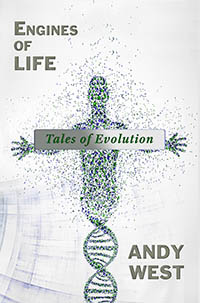


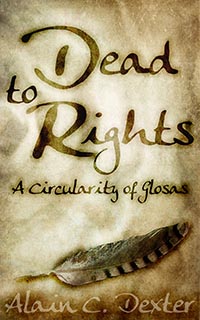



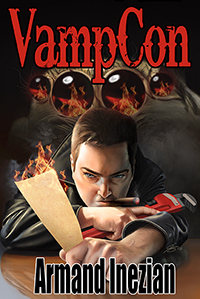
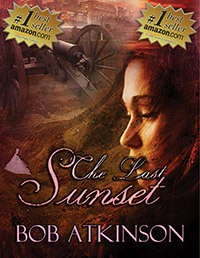
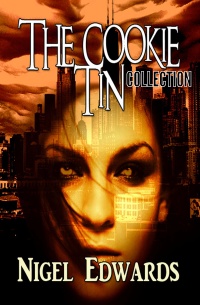







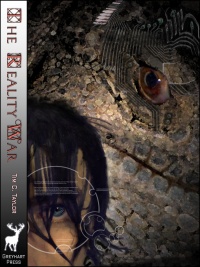
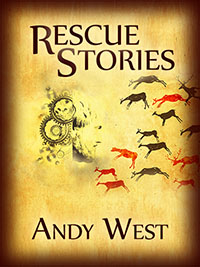




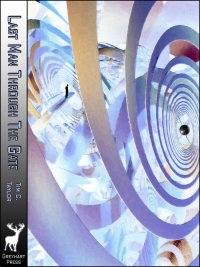










I couldn’t believe that I witnessed an argument over whether or not the ghosts were real…
…in a graduate level critical theory class.
The real discussion is in how brilliantly James maintained ambiguity, fer sher.
The world definitely needs more ghost stories, James. And a ton more ambiguity. Excellent post.
Great post. One of the things I love about much of Aickman is exactly what you describe: so many of his stories are unexplained and unexplainable, whether by worldly or by supernatural forces.
I tend to find ambiguity more scary than the revealed…part of that might be the whole ‘showing the monster’ thing. Much prefer the gaps.